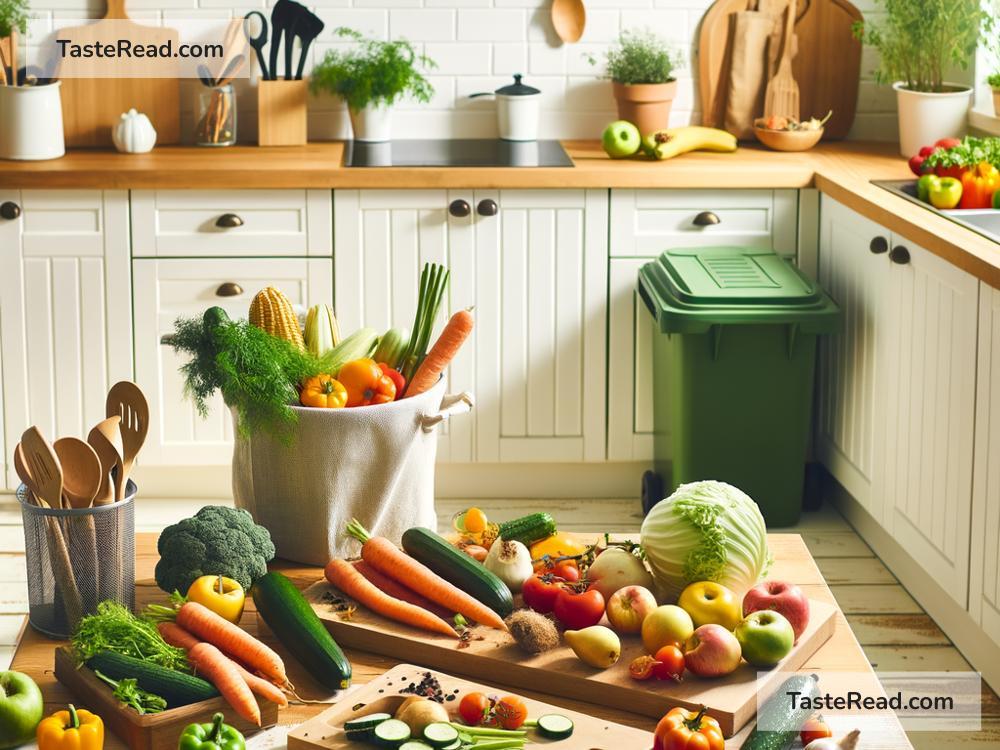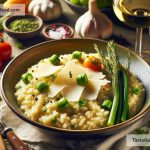Cooking with a Sustainable Perspective: My Zero-Waste Kitchen Adventure
Embarking on a culinary journey with sustainability and zero waste in mind has profoundly transformed my relationship with food and cooking. It’s not just about minimizing waste; it’s a holistic approach to how we shop, cook, and think about food. Here’s a peek into my adventure of cooking with sustainability at the helm.
Starting Out
My journey into sustainable cooking began with a realization of the sheer amount of waste generated in kitchens. Leftover scraps, unused perishables, and excessive packaging pointed to a glaring need for change. Motivated by this, I decided to make a shift—a move towards mindful cooking and eating that respects our planet’s resources.
Mindful Shopping
The quest for zero waste cooking starts much before one enters the kitchen—it begins at the marketplace. I learned to plan my meals ahead, which significantly cut down on impulse purchases and food waste. Buying in bulk became a new norm, alongside bringing reusable bags and containers for packaging. Embracing local and seasonal produce not only supported local farmers but also meant the food was fresher and had a lower carbon footprint. It’s a simple step with profound impacts, from reducing packaging waste to enjoying healthier, flavor-packed meals.
Embracing Whole Foods
The focus then shifted towards whole foods—foods that are minimally processed and close to their natural state. Not only are they nutritious, but they also come with less packaging. Think of bulk bins filled with grains, beans, nuts, and seeds, or fresh produce without the unnecessary plastic wrap. It’s an effective way to cut down on kitchen waste while boosting nutritional intake.
Creative Cooking: The Art of Using Everything
One of the most exciting aspects of zero-waste cooking is finding creative ways to use every part of the food. Vegetable peels, stalks, and roots, which often end up in the trash, can be turned into flavorful stocks, crisps, or added to compost. Learning to see the potential in what’s commonly discarded is a game-changer. For instance, broccoli stems, once peeled, reveal a tender, delicious interior that’s perfect for stir-fries or slaw. It’s about reimagining what constitutes as waste.
Composting: Giving Back to the Earth
Composting organic waste was the next logical step. Peelings, eggshells, and coffee grounds enrich the compost, which in turn nurtures the garden. It’s a beautiful cycle of giving back to the earth, turning waste into a resource. For those without a garden, community composting offers a wonderful alternative to keep organic waste from landfills.
Preserving and Reducing
Preserving seasonal bounty became a delightful venture—from pickling vegetables to making jams and freezing herbs in olive oil. These practices not only reduced waste but also ensured I had flavorsome, homemade ingredients at hand. Additionally, learning to properly store different types of food extended their shelf life, significantly cutting down on wastage.
The Unexpected Outcomes
This shift towards sustainable cooking brought unexpected benefits. My diet became inherently healthier, filled with fresh, unprocessed foods. The act of cooking became more intentional and mindful, transforming meals into a thought-provoking activity rather than a chore. Financial savings were another surprising outcome, as buying in bulk, choosing local produce, and reducing waste all contributed to a lighter grocery bill.
The Ripple Effect
Perhaps the most gratifying aspect of this journey has been witnessing the ripple effect. Friends and family have become curious and inspired to make their own changes, whether it’s by starting to compost, shopping with reusable bags, or exploring creative ways to use leftovers. It’s a testament to how individual action can inspire collective change.
Final Thoughts
My experience with cooking focused on sustainability and zero waste has been illuminating. It has challenged me to rethink my habits, get creative in the kitchen, and take actionable steps towards a more sustainable lifestyle. More than anything, it has underscored that every small choice matters. From buying locally to composting kitchen scraps, the sum of these actions contributes to a healthier planet. Cooking with sustainability in mind is a continuous journey, one that evolves with each meal. It’s an invitation to each of us to become more conscious of our culinary practices and their impact on the world around us.
In embracing this path, I’ve learned that cooking is not just about feeding ourselves; it’s an opportunity to nourish our bodies, our communities, and the planet. Here’s to making every ingredient count and every meal an act of mindful consumption. Join me in turning the simple act of cooking into a powerful tool for change.


